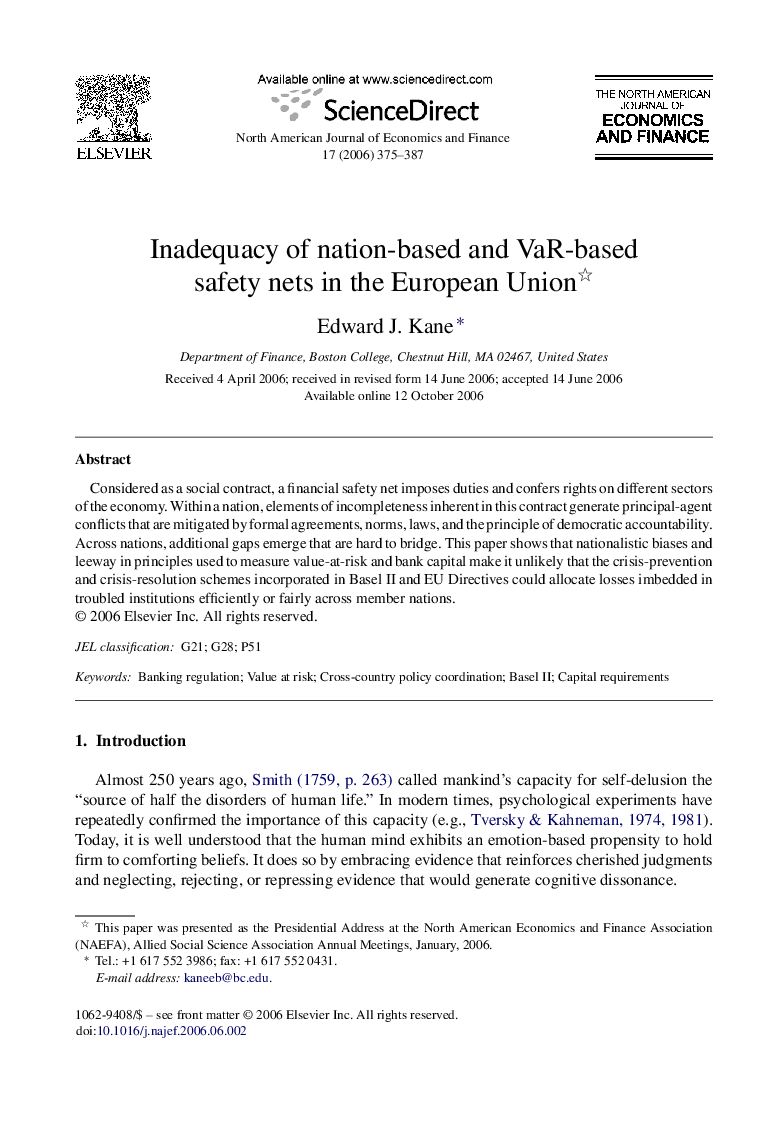| Article ID | Journal | Published Year | Pages | File Type |
|---|---|---|---|---|
| 973256 | The North American Journal of Economics and Finance | 2006 | 13 Pages |
Abstract
Considered as a social contract, a financial safety net imposes duties and confers rights on different sectors of the economy. Within a nation, elements of incompleteness inherent in this contract generate principal-agent conflicts that are mitigated by formal agreements, norms, laws, and the principle of democratic accountability. Across nations, additional gaps emerge that are hard to bridge. This paper shows that nationalistic biases and leeway in principles used to measure value-at-risk and bank capital make it unlikely that the crisis-prevention and crisis-resolution schemes incorporated in Basel II and EU Directives could allocate losses imbedded in troubled institutions efficiently or fairly across member nations.
Related Topics
Social Sciences and Humanities
Economics, Econometrics and Finance
Economics and Econometrics
Authors
Edward J. Kane,
